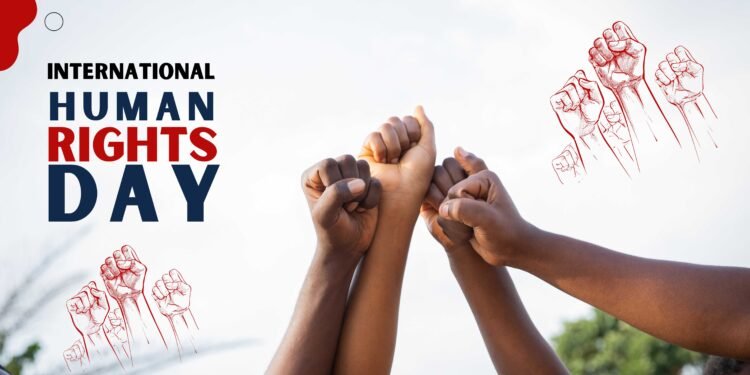JALINGO, Nigeria (BG) – As the globe celebrates Human Rights Day on December 10, Northern Nigeria is making strides to uphold human rights while advancing efforts toward the United Nations Sustainable Development Goals (SDGs).
“On this important day, let’s protect, defend and uphold all human rights for all people,” said António Guterres, United Nations Secretary-General, in his message for Human Rights Day.
Northern Nigeria is grappling with challenges tied to education, gender equality, healthcare access, and poverty reduction, but initiatives like the upcoming Taraba Human Rights Film Festival (TAHRIFF) aim to spark transformative dialogue and action.
The inaugural TAHRIFF, scheduled for September 23–28, 2025, in Jalingo, Taraba State, is poised to become a cornerstone event in Northern Nigeria’s human rights advocacy landscape.
Festival Director Moses V. Samuel describes it as “a platform for indigenous voices to tell stories that matter and inspire action toward sustainable development and human rights.”
Education and Gender Equality
Access to education remains a pressing challenge for marginalized groups in Northern Nigeria. The lack of schools, quality teachers, and awareness of the importance of education limits opportunities for women and children, especially in rural areas.
Addressing this, TAHRIFF aims to create a space for discussions around community-based solutions that involve religious and traditional leaders to promote education as a right for all.
“Providing quality education through scholarships, improved infrastructure, and culturally sensitive engagement can ensure marginalized communities see the value in education,” Samuel told Bantu Gazette in an exclusive interview.
Efforts in states like Taraba, including free and compulsory education programs and women-led initiatives in public governance, demonstrate progress. According to Samuel, “Films and creative storytelling can amplify these successes and inspire wider adoption of such strategies across the region.”
Tackling Poverty and Inequality
Northern Nigeria faces high levels of poverty, compounded by rising inequality.
Addressing these issues requires empowering women economically, creating access to funding for small businesses, and providing mentorship programs for youth in agriculture, technology, and creative industries.
“We must shift the narrative by celebrating hard work and creativity over wastefulness or criminality,” Samuel emphasized. “TAHRIFF will use storytelling to showcase role models and practical solutions to community challenges.”
Healthcare and Human Rights
Conflict-affected areas in Northern Nigeria, particularly in rural regions, suffer from inadequate healthcare infrastructure.
Persistent terrorism and banditry have displaced populations, leaving many without access to medical or psychological care.
Strengthening healthcare systems by improving welfare for health workers and securing public-private partnerships is essential.
Samuel noted that platforms like TAHRIFF can “highlight the intersection of human rights and healthcare, emphasizing the need for inclusive policies that address both physical and psychological needs.”
The Role of Civil Society and Community Action
Civil society organizations (CSOs) and local communities are pivotal in advancing human rights while aligning with the SDGs.
From grassroots advocacy to creating safe spaces for dialogue, their role cannot be overstated.
TAHRIFF intends to collaborate with CSOs to foster greater community engagement, ensuring that human rights conversations are inclusive and actionable.
“This festival is more than a film event; it is a call to action,” said Samuel. “We aim to bridge the gap between policymakers, activists, and citizens, creating a unified front against human rights violations.”
Aligning with Human Rights Day 2024 Theme
This year’s Human Rights Day theme, “Our Rights, Our Future, Right Now,” underscores the urgency of tackling human rights challenges through collective action.
“This year’s theme reminds us that human rights are about building the future — right now. All human rights are indivisible. Whether economic, social, civic, cultural or political, when one right is undermined, all rights are undermined,” according to the UN Secretary General.
TAHRIFF reflects this ethos by integrating film as a medium to connect with diverse audiences and mobilize support for sustainable development.
As Northern Nigeria continues to address its challenges, initiatives like TAHRIFF serve as vital platforms for fostering awareness, building partnerships, and driving progress toward a more equitable and sustainable future.
Human Rights Day is observed annually around the world on 10 December. It commemorates the anniversary of one of the world’s most groundbreaking global pledges: the Universal Declaration of Human Rights (UDHR).
This landmark document enshrines the inalienable rights that everyone is entitled to as a human being – regardless of race, colour, religion, sex, language, political or other opinion, national or social origin, property, birth or other status.




